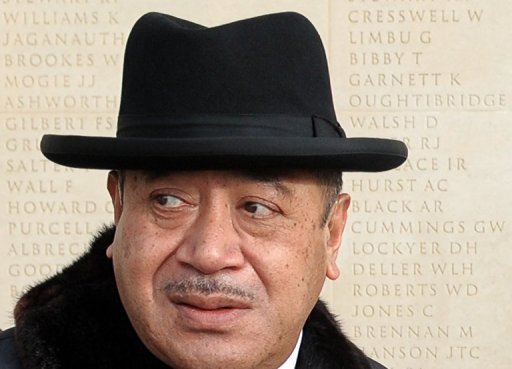
OPINION: AUCKLAND (New Zealand Herald / Pacific Media Watch): Longevity is not always an accurate marker of the impact of a monarch's reign. That much can be accomplished in a short time has rarely been better demonstrated than by King George Tupou V of Tonga. Between his elevation to the throne in 2006 and his death on Sunday, aged 63, he transformed the small island kingdom into a parliamentary democracy. The scope of that achievement should not be underestimated. Throughout the ages, only the most astute of absolute rulers have been able to preserve their own position and prestige while ceding most of their powers.
It has been suggested that the king knew his reign was likely to be truncated because of his many health problems. Having accepted that the monarchy must take a far more limited role in Tongan affairs, he was intent on implanting democracy before he died.
But he had other reasons to make haste. His father had resisted handing over more than a few snippets of authority during a four-decade rule. This created a simmering resentment, which exploded after his death when rioting destroyed the centre of Nuku'alofa. Some less enlightened rulers would have reacted harshly, thereby placing the future of the monarchy in doubt.
Three days before his coronation in 2008, King Tupou announced he would relinquish much of his power.
This garnered him a popularity that had once seemed unlikely. His father had been a revered figure despite his intransigence. Character and circumstance meant there was never going to be such esteem for his monocle-wearing, somewhat distant son, and nor would he be able to rely on such a reservoir of goodwill. He was handicapped, first, by a lifestyle that mixed extravagance and eccentricity in equal measure.
Then there was a series of missteps, including a lavish coronation which cost about $3 million, and his decision immediately after the 2009 ferry tragedy, to continue a planned visit to the Edinburgh Tattoo. Neither episode suggested a man attuned to the poor circumstances of many of his subjects.
His legacy will be more than a democratic Tonga. He also sought to make the economy more market-driven and open to foreign competition and investment.
In both areas, there were to be setbacks. Tonga's nobles were able to claim control of the first democratic government, despite a clear constitutional expectation that commoners would hold sway in the House of Representatives. This cannot have been what the king had in mind. Equally, efforts to encourage growth in the country's woebegone economy, which depends heavily on remittances from Tongans living abroad, have been undermined by the global downturn. New Zealand's $2.2 million in emergency budget support last year was matched by several other donors.
The new monarch will be King Tupou V's younger brother, 52-year-old Prince Tupouto'a Lavaka Ata. Trained as a naval officer, he served as Prime Minister between 2000 and 2006. He is associated, particularly, with the creation of an international airline, which collapsed, leaving Tonga much indebted.
Fortunately, such grand schemes are no longer at the whim of Tonga's royal family, and the new monarch would seem to have little option but to adapt to the changed circumstances.
Thanks to King Tupou V, there is surely no going back on democracy. The strong support for the Democratic Party in the 2010 elections illustrated how thoroughly it had been embraced. Any attempt by the monarchy or nobility to return the genie to the bottle would risk a repeat of the 2006 Nuku'alofa upheaval. In a few short years, King Tupou V has laid the foundation for a more enlightened and more prosperous Tonga.

This work is licensed under a Creative Commons Attribution-NonCommercial 3.0 New Zealand Licence.



